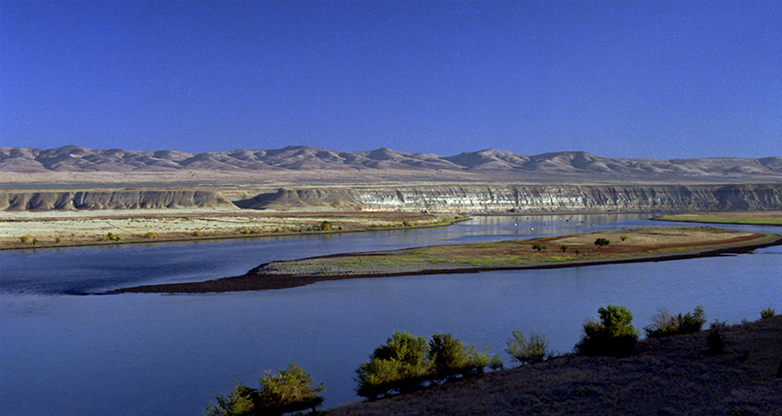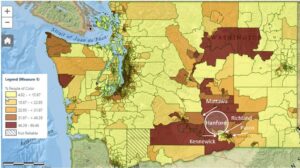
Environmental programs try to break barriers in Hanford education
Listen
(Runtime 1:09)
Read
Environmental organizations are making Hanford site information more accessible for underserved communities around the Columbia River.
Educational programs, multilingual meetings and resources in different languages will break down barriers and help communities understand the importance of cleaning up the most contaminated site in the Northwest and the impact that has on their daily lives.
It’s part of efforts to provide communities with environmental justice and comply with the Healthy Environment for All (HEAL), said Ryan Miller, communications manager for the Washington State Department of Ecology Nuclear Waste Program.
“It’s meant to remedy the effects of policies and practices that lead to environmental health disparities and communities and improve the health of all people in Washington,” said Miller.
Columbia Riverkeeper is another organization working to provide better information to Hispanic communities.
Grants manager Lisa Muñoz said the organization recently launched an interactive bilingual website about Hanford pollution.
The Spanish version of “Water’s Walk Through Hanford” (El paseo del agua por Hanford) is designed especially for middle-school and high-school students but open to other audiences.
It tells the story of Raindrop, a drop of water that falls on Hanford during a storm. Raindrop runs into pollutants during a journey to the Columbia River and learns about Hanford cleanup efforts.
“We wanted to create a story map that was more inviting, so we removed that intimidation factor that a lot of Hanford information comes with this feeling of overwhelm or confusion because there’s a lot of technical jargon that doesn’t need to be there,” said Muñoz.
Ginger Wireman, a state Department of Ecology communication outreach and environmental education specialist, said Hispanic communities are not homogeneous, and the challenges go beyond translating or interpreting information.
“We will need to have trusted community connectors who know his or her community and know the various dialects and can break stuff down and try to further explain it,” said Wireman.
Other organizations are providing more Spanish-language information. For example, Hanford Communities added Spanish closed captions to its video series on the Hanford site.

Diversity of population around the Hanford site. Photo from www.ecology.wa.gov.
Sharing information about Hanford’s contamination and its impact on the community’s well-being is critical to understanding the potential health risks and accessing resources to protect individuals and their families, especially in an emergency.
“There are 177 underground tanks. They’ve got 56 million gallons of highly radioactive and toxic chemically hazardous waste,” says Miller.
Up to 67 underground tanks have leaked hazardous waste in the past, he added. Currently, two single-shell tanks have active leaks.
The goal is that people know what Hanford is and how it came to be; the current cleanup challenges and progress happening; the future of cleanup; environmental risks associated with the Hanford Site, to engage with communities on cleanup decisions, said Miller.
According to an Environmental Justice report, each additional year of cleanup at Hanford means that improperly stored waste or accidental releases of contamination could further pollute the soil, air aquifers and the Columbia River, affecting the communities around the river.
A high percentage of the population near Hanford speaks languages other than English at home. In Mattawa, for example, 98% of the people are Hispanic and 52% do not speak English well.
In addition to Spanish resources, Miller said the Department of Ecology seeks to serve other populations who also experience language barriers and isolation in terms of environmental justice.
He said his team is also working to provide resources for Asian and Eastern Europeans in the Tri-Cities and surrounding areas who also need information in their native languages.















